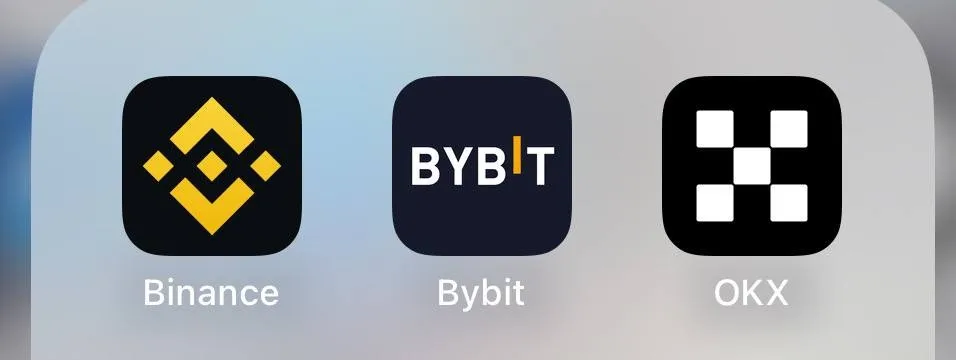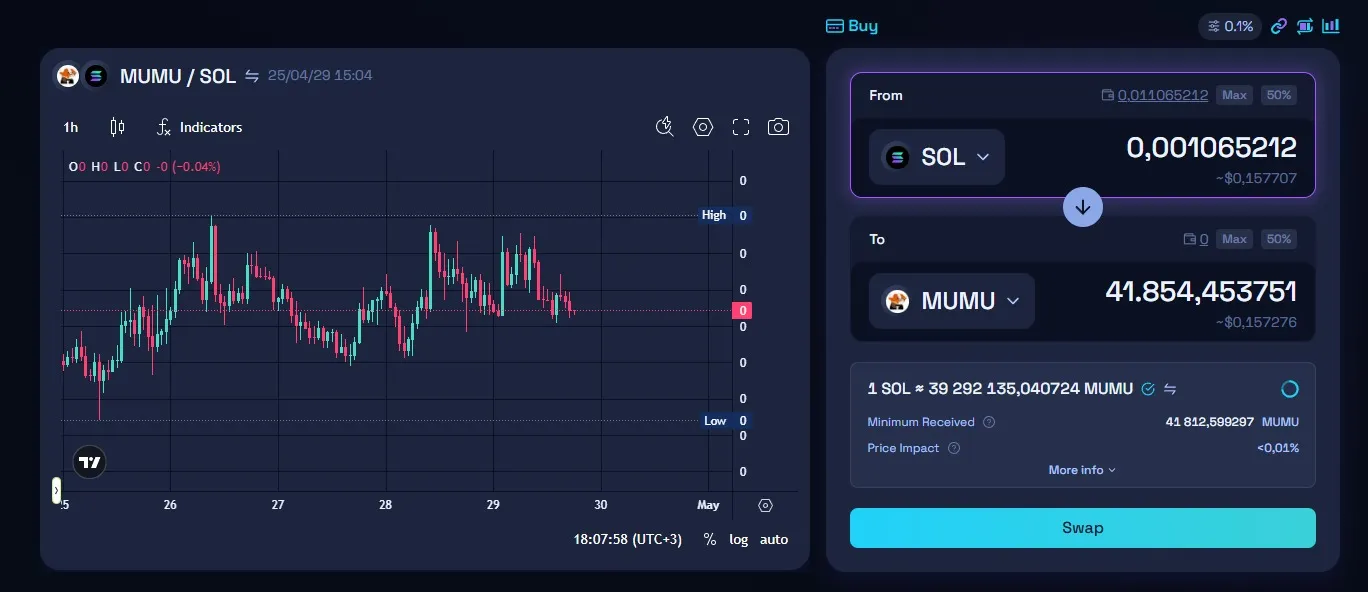
Why are cryptocurrency exchanges needed?
The cryptocurrency industry has long gone beyond experimentation, and today it is impossible to imagine it without exchanges. These platforms play a crucial role in the exchange, storage and management of digital assets. Understand why cryptocurrency exchanges are needed and all their subtleties, it is important not only for beginners, but also for everyone who is seriously interested in digital finance today.
What is a cryptocurrency exchange

A cryptocurrency exchange is an online platform where users can buy, sell or exchange digital assets. There are two types of platforms: centralized and decentralized exchanges.
Centralized (CEX) and decentralized (DEX)
Centralized, or CEX, such as Binance or Bybit, are run by companies that store user assets and provide infrastructure. Decentralized exchanges, or DEXs, operate without intermediaries, allowing users to trade directly with each other via smart contracts.
How exchanges work
Crypto exchanges work based on an order matching model: some users place orders to buy, others to sell, and the exchange aggregates them when conditions match. This is the basic principle of operation of centralized and decentralized exchanges, despite the differences in architecture and degree of control.
Centralized exchanges (CEX) are run by private companies that store user funds and data on their servers. Let’s look at the algorithm using the Bybit exchange as an example.
The user first deposits his balance, then goes through Bybit verification to confirm his identity, and only then gets access to trading. All activity takes place on the exchange side, which ensures high liquidity on the exchange and fast transaction processing, but requires trust in the platform.

Decentralized exchanges (DEX) have no central operator. Here, users transact directly with each other through smart contracts. This provides a high level of anonymity and control over funds, but may be inferior to CEX in terms of speed and trading volume. Therefore, the question of p2p vs exchange is relevant - everyone chooses the appropriate method depending on their goals and experience.
On any exchange, regardless of type, users can see order stack, price charts, historical trades and indicators. They can place market or limit orders using the platform interface or trading bots. All this makes cryptocurrency trading accessible not only for experienced traders, but also for beginners.
Main functions of a crypto exchange
The main function of all types of exchanges is to provide a platform for buying, selling and exchanging cryptocurrencies. Through exchanges, users can quickly convert one coin to another or to fiat money, which cannot be done directly through the blockchain. This allows for efficient use of the market and responding to market changes.
Another important function is market price formation. Exchanges combine supply and demand, and this is where the current value of a particular coin arises. This makes the exchange a kind of barometer for the entire crypto market. Exchanges also provide charts, indicators and analytical tools for technical analysis, which is necessary for both professional traders and those who are just beginning to master cryptocurrency trading.
In addition, exchanges provide asset storage, deposit and withdrawal capabilities, transfer between exchanges/wallets, and support for various order types and integration with external services. As a result, they remain an integral part of the infrastructure. On some of them it is possible to connect trading bots using API or connect DeFi protocols. All this makes them an essential tool in the arsenal of every crypto market participant.
Why you can’t do without exchanges
Without exchanges, it would be impossible to organize a free and mass exchange of cryptocurrencies. It is they that connect millions of users around the world, turning decentralized tokens into real means of exchange. The role of a crypto exchange in the ecosystem is to provide access to liquidity, allow users to quickly enter or exit the market, and create a single platform for pricing.
Exchanges also act as intermediaries between users and the blockchain, offering a simple interface for transactions that would otherwise require deep technical knowledge. They allow users to make a crypto deposit, be verified, and start trading or investing within minutes. All this is especially important for beginners who need convenience and security in the first stages.
Exchanges facilitate the introduction of cryptocurrencies into the real world. Without them, it would be impossible to imagine P2P exchanges at the level necessary for mass use. They provide transparency, visibility of trading volumes and accounting of all transactions, which contributes to the growth of trust in cryptocurrencies in general. That is why the question of why crypto exchanges are needed is rhetorical, because without them, the digital economy simply could not function.
The role of cryptocurrencies in the blockchain ecosystem
Cryptocurrency exchanges are fundamental elements of the blockchain ecosystem, connecting the world of decentralized technologies with the real financial space.
In the blockchain ecosystem, exchanges act as a bridge between users and cryptocurrency networks. They provide the ability to buy and sell tokens, as well as utilize various forms of trading, from spot to margin trading. This makes exchanges not just an entry point into the world of cryptocurrencies, but a full-fledged center of market activity, where the value of assets is formed.
Exchanges also serve as liquidity aggregators. Dozens and hundreds of different coins can be traded on one platform, including both popular and recently released coins. This provides an inflow of capital and accelerates the development of new blockchain projects that use exchanges as the main channel for attracting investors. Without them, the process of token distribution would be ten times slower and more complicated.
Another important aspect is the participation of exchanges in security. Although they are not decentralized in nature (in the case of CEX), many of them implement asset protection mechanisms, verification, cold storage and systems for monitoring suspicious transactions. This makes centralized and decentralized exchanges a fulcrum not only for trading, but also for anti-fraud and anti-money laundering.
As technology advances, exchanges are becoming more integrated into the DeFi space. Some of them support staking, p2p exchanges, trading bots, and allow for NFT and tokenized assets. This expands the scope of their functionality and makes them part of a broader ecosystem beyond simple trading.
Risks of using exchanges
However, every technology has its weaknesses and it’s not just about fraudulent schemes.
Hacking attacks
One of the major downsides is the possibility of hacker attacks. Even large centralized platforms are not immune to hacking.
Account freezing
It is also possible for accounts to be frozen at the request of regulators or due to internal exchange policies.
Regulatory restrictions
Another risk is regulatory restrictions, where entire countries can block access to an exchange or ban its activities. All these factors form a general idea of crypto exchange risks emphasize the importance of choosing a trusted platform.
How to choose a reliable crypto exchange
The first thing to look at is the reputation of the exchange. A safe crypto exchange should have a transparent history, positive feedback from users and presence in authoritative ratings in the topic - the best crypto exchanges of 2025. It is equally important to examine the availability of licenses and the degree of regulatory compliance in various jurisdictions. This is especially relevant in the context of increasingly tight control over cryptocurrency platforms in a number of countries.
Separately, it is worth mentioning such technical aspects as account protection, two-factor authentication, cold storage of assets and insurance of user funds. All this should be realized at a level that will ensure the stability of the platform even in case of hacking attempts or technical failures. The ability to undergo verification or similar procedures on other exchanges is also important - this increases both security and transaction limits.
Commissions and liquidity on the exchange also play an important role. A transparent system of fees, no hidden charges and high trading volume allow you to make transactions quickly and at a fair market price. In addition, a convenient user interface and the availability of a mobile app can greatly facilitate the process of cryptocurrency trading.
When choosing a platform, you should consider the following criteria:
-
Legal registration and regulatory compliance.
-
The level of security and asset storage.
-
Reputation in the crypto community.
-
Support for a wide range of cryptocurrencies.
-
Technical support and interface localization.
Who needs a crypto exchange today and why
Today, cryptocurrency exchanges for beginners and professionals are an indispensable tool for accessing crypto and other digital assets. They are becoming a universal entry point for both regular users who simply want to exchange fiat for cryptocurrency, as well as traders, investors, businesses, and even financial institutions.
Newbies most often come to an exchange for their first bitcoin or ether purchase. Exchanges make it easy for them to get verified, fund their account and make their first trade. Complex DeFi interfaces deter beginners, whereas CEX offers a simple and intuitive way to exchange cryptocurrency through an exchange. Additionally, exchanges offer tutorials, demo modes, and tech support, making the process of entering the market clearer and safer.
Professional traders want high liquidity, advanced order functions, analytical tools and access to algo-trading. Exchanges provide APIs, enable trading bots for bitcoin and other cryptocurrencies, and offer a variety of markets including futures, options, and more.
Funds and large investors use exchanges as a means of withdrawing or injecting capital, integrating into blockchain projects and participating in token seals. They not only care about trading conditions, but also the legal security of the platform.
FAQ
1. Why do I need verification on an exchange like Bybit?
To comply with KYC and AML laws and to increase account security.
2. How to deposit Veles with Bybit?
You need to copy your Veles wallet address and make a crypto deposit from your Bybit account, selecting the desired coin and network.
3. Which exchange is considered the safest?
Today’s top 2025 best crypto exchanges include Binance, Binance, Bybit, OKX, HTX, Gate. io and BingX, due to their high security standards.
4. What is the difference between CEX and DEX?
Centralized exchanges are managed by a company, while decentralized exchanges work on smart contracts and do not require trust in intermediaries.
5. Is it possible to do without a crypto exchange?
Technically you can, using P2P or DeFi services, but the convenience, scale and features of crypto exchanges make them indispensable in most cases.
